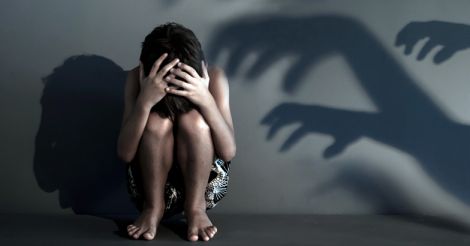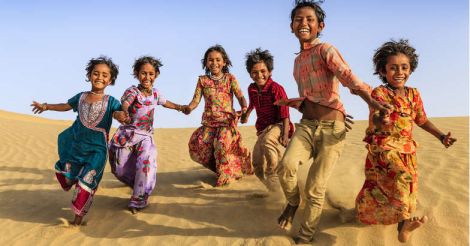Slanting sheets of rain and thunder deepened the aura of gloom as we reached our destination near Bhopal after plodding through mud and slush for a few hundred meters. A small house displayed defiant dignity even as some rainwater seeped in. The expression in the tormented eyes of Bindiya, 5, would haunt even the hardened cynic.
On a grim day in July, 2017, she was raped by a monster masquerading as a human being. The anger and shock of the parents were palpable. So was uncomprehending fear. The police were yet to find out who the rapist was, leave alone arresting him. For us, it was a blessing when she smiled for a moment. But her eyes continue to haunt with unspoken words: What happened with me? What is my fault?
We are celebrating seventy years of freedom. We must celebrate. But we must also think and take a long look at a mirror. Even as we count our achievements and triumphs since 1947, an entire generation of Indians is being held hostage by fear. Young girls in small towns are afraid of going to school since they might be waylaid and gang raped. Parents in gated communities in teeming metros are terrified when their daughters, and even sons, don't come back home on time.

The fear, it seems, has become all pervasive and it has made a mockery of freedom. Classrooms in schools have been infected by fear as some teachers have turned predators. Parks and playgrounds near our homes still ring with the laughter of children. But they too have become hunting grounds for perverts prowling for prey. Uncles, step fathers, tuition masters, gym instructors, bus drivers, neighbors, it is difficult to say who suddenly becomes a child rapist. One day, it is a poor tailor who turns out to be the beast; the other day, it is a highly educated IT professional. India is yearning and crying out for freedom from these predators. According to official NCRB data, about 43 children are sexually abused every day in India. If that doesn't shame us into collective action, nothing will.
Over the years, I have witnessed this slow and sinister slide into what can be called the Republic of Fear. If freedom has to have any meaning seventy years after political independence, our children and their parents must get an India that is free of fear. Sexual violence against children is now threatening to be a rampaging epidemic. It is easy to protest against myriad forms of tyranny and injustice that still plague India. But we suffer from a collective conspiracy of silence when it comes to sexual abuse of children. Narrow walls of social stigma cow down the victims and their parents. It is known that the actual number of child sexual abuse cases is far higher than officially recorded cases as parents keep quiet in a majority of cases. But the time has come to raise our voices in loud protest.
As with many ills that plague India, effective law enforcement, or the lack of it, is a major crisis. After decades of hard work and persistence by concerned citizens and activists, POCSO became a reality in 2012. But is it being implemented in a manner that can reassure parents and erase fear? Sadly, no. Take just one example from the capital city of Delhi. In April 2013, a young girl didn't come back home. Her poor parents begged and pleaded with some policemen for help. They were rebuffed and shooed away. A few days later, she was found barely alive, brutally raped and tortured and left to die inside a house in the neighborhood. Two rapists were soon arrested and a trial began. Four years after the trial began, one of the accused successfully claimed to be a juvenile. Four years on, the trial still goes. Helped by some of us, Gudiya and her parents are struggling to build a new life. But the parents and Gudiya will remain in fear for the rest of their lives.

Trafficking is an organized crime that is closely linked to the sexual abuse of minors. It is estimated that close to a hundred thousand children go missing every year. More than half are never rescued. Most become sex slaves. Almost always, it is poor children who become victims. There are disturbing reports coming out of West Bengal and Assam of brazen gangs of traffickers preying upon poor families devastated by the floods this year. For years, we have been struggling hard for an effective law against trafficking. We are yet to succeed.
As a society we urgently need concrete action. Law enforcement agencies and officials must become more sensitive and display compassion. We need to devise ways to make them accountable. We need to overhaul and vastly improve post trauma care and counseling for these children. We must impart sex education in all schools to make children aware of the danger posed by sexual perverts. But most important, we as parents and family members need to become friends and confidantes of children to the point they lose the fear of speaking out when they are sexually violated. This freedom to speak out without fear is the most precious gift we can give our children as we celebrate 70 years of independence. Let us make India safe for children to chase their dreams.
(The author, a Nobel laureate, is a noted child rights activist)

























